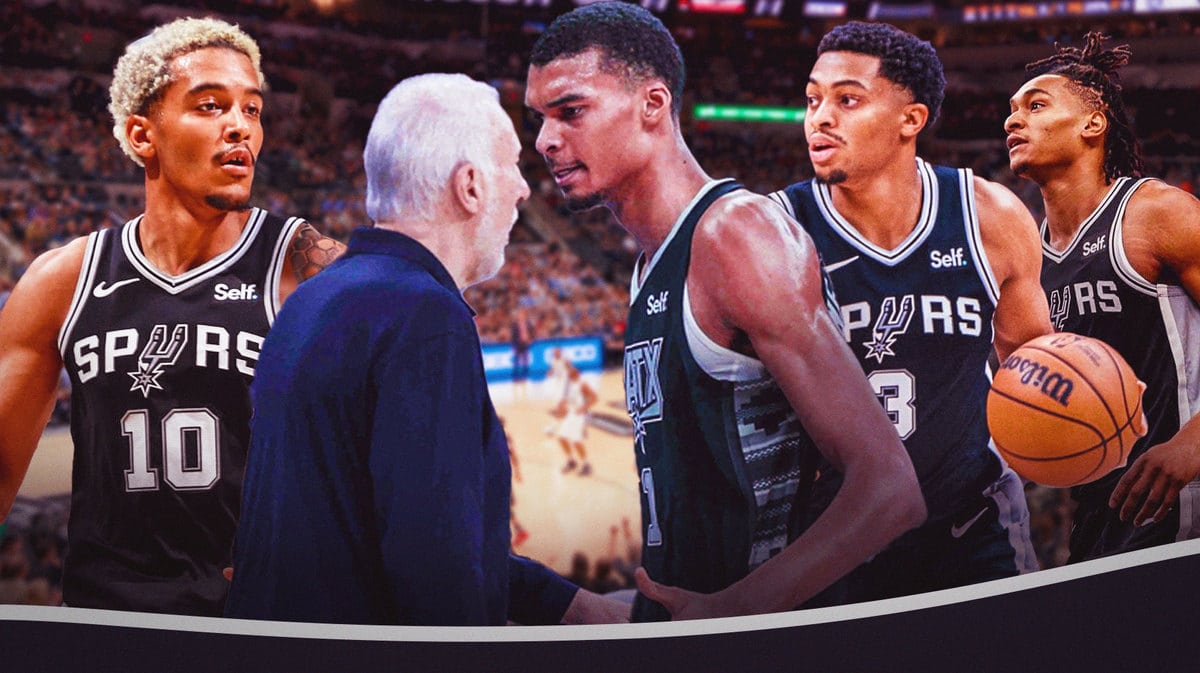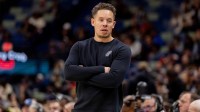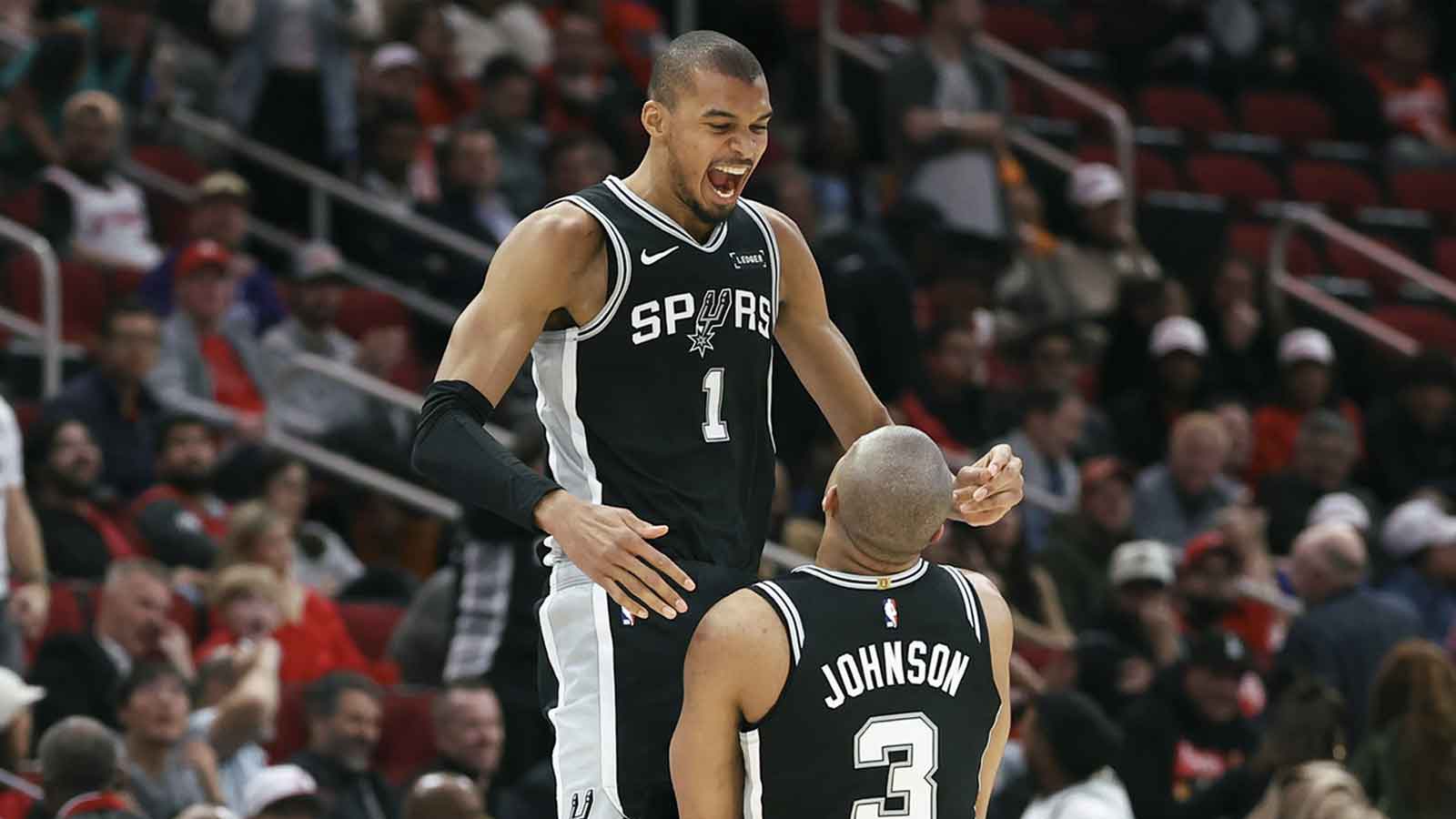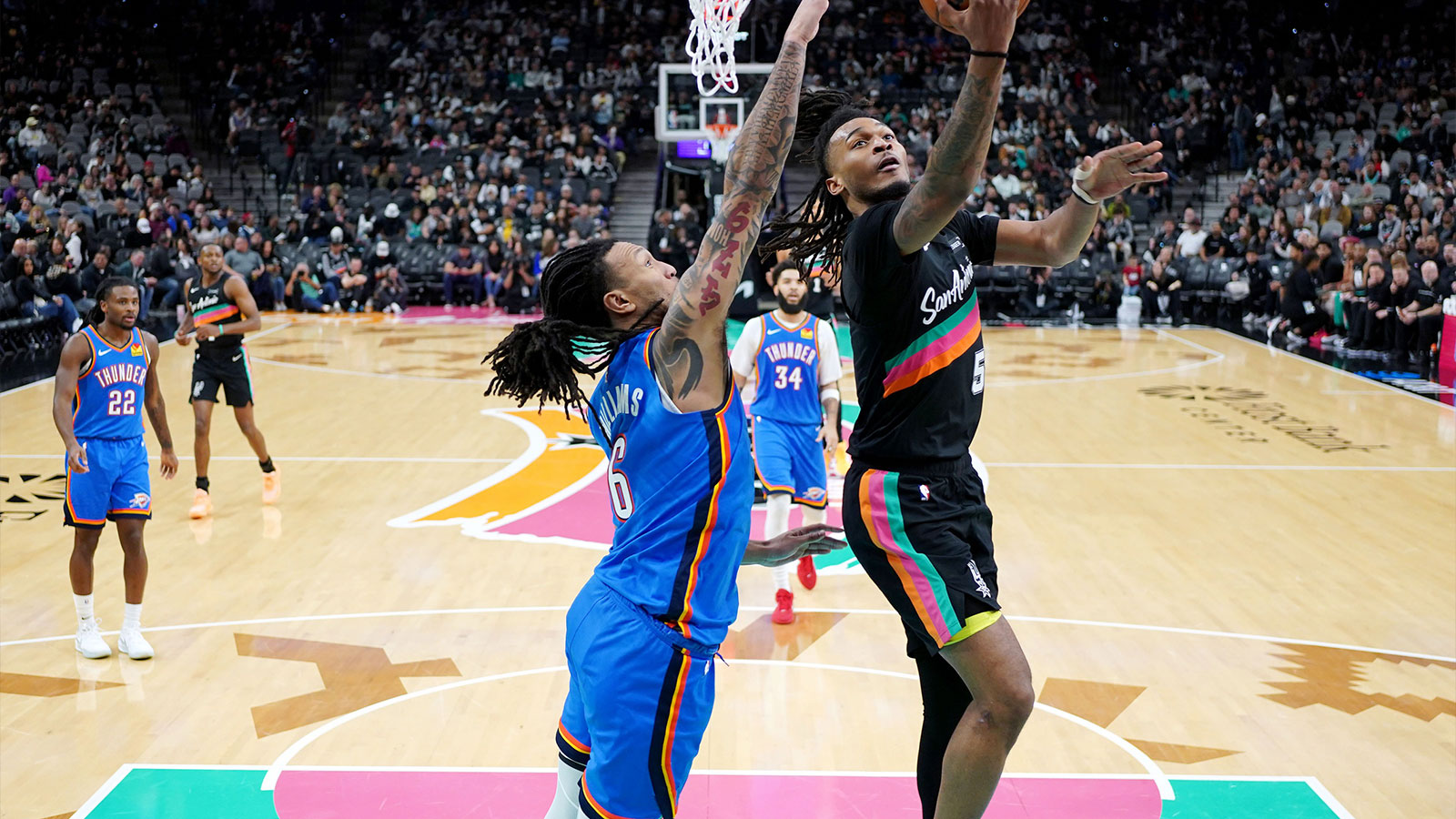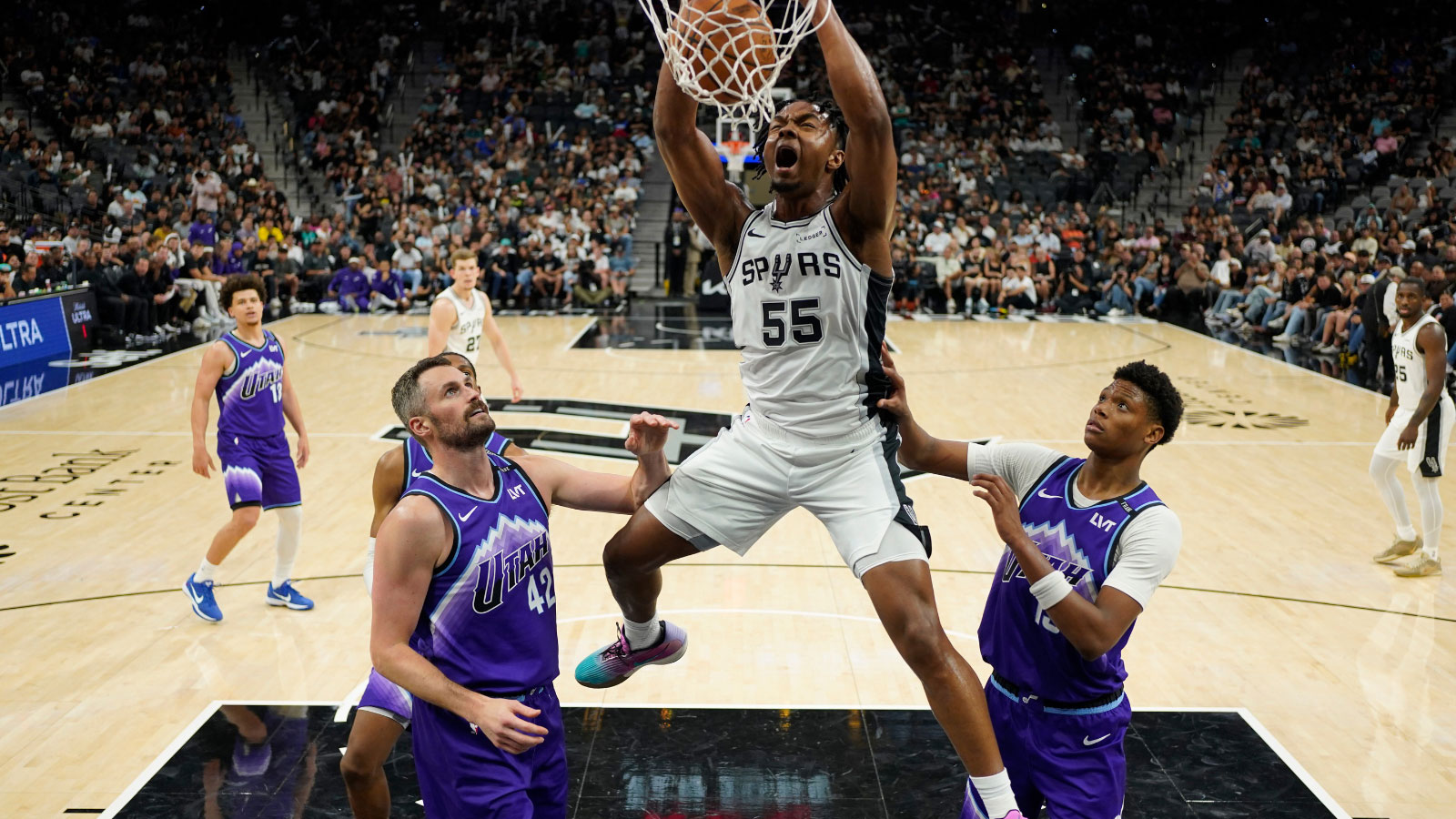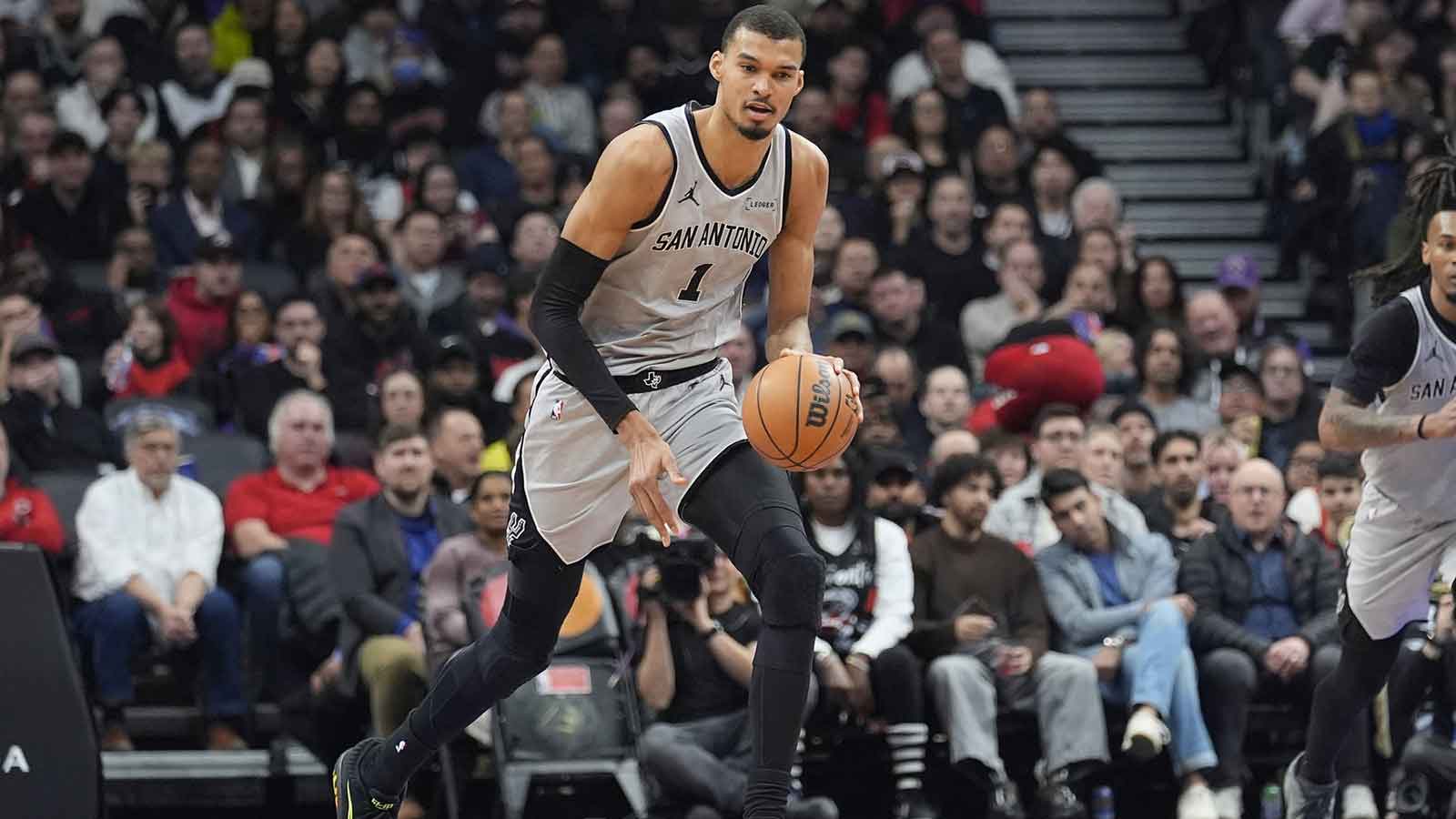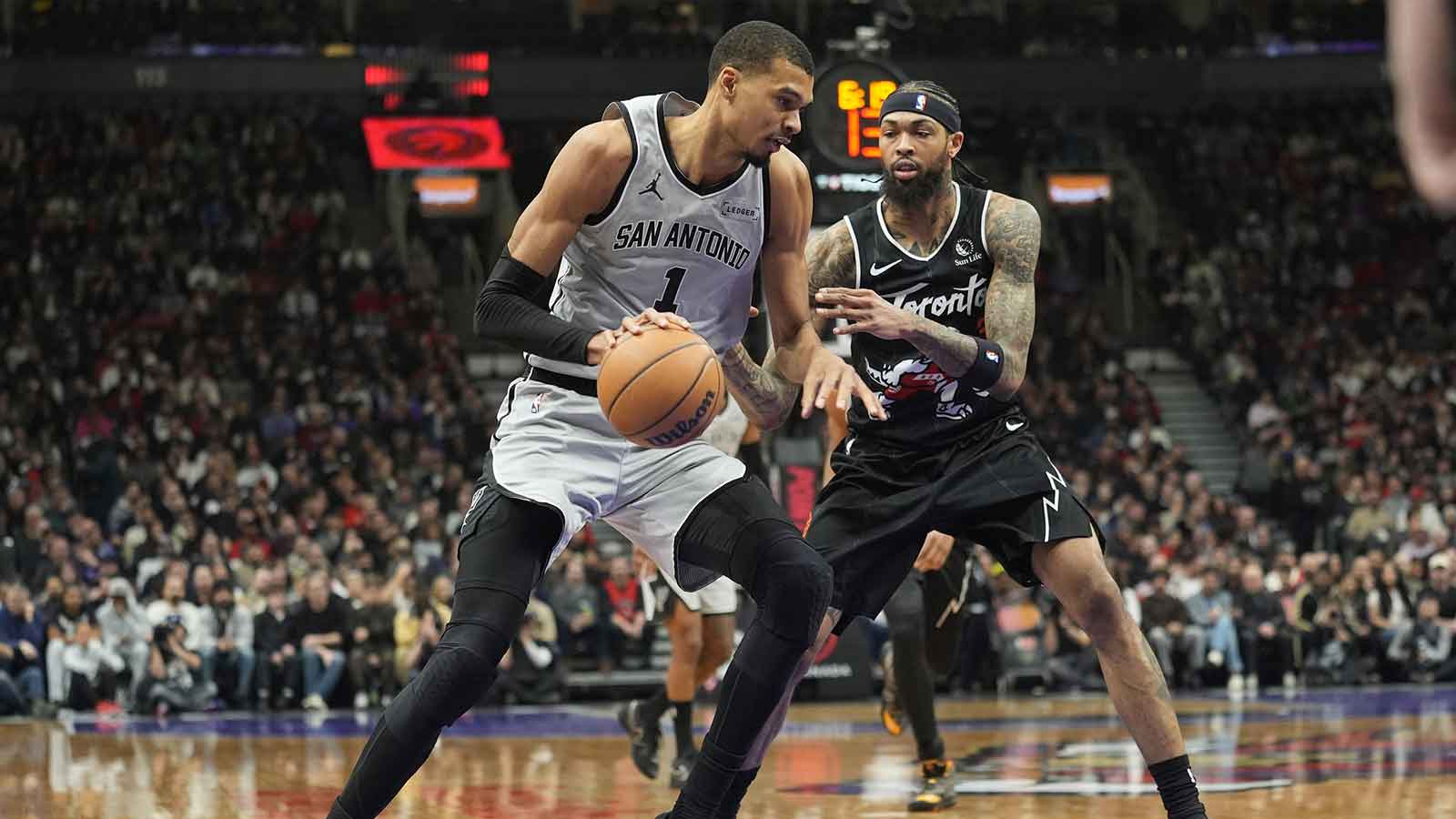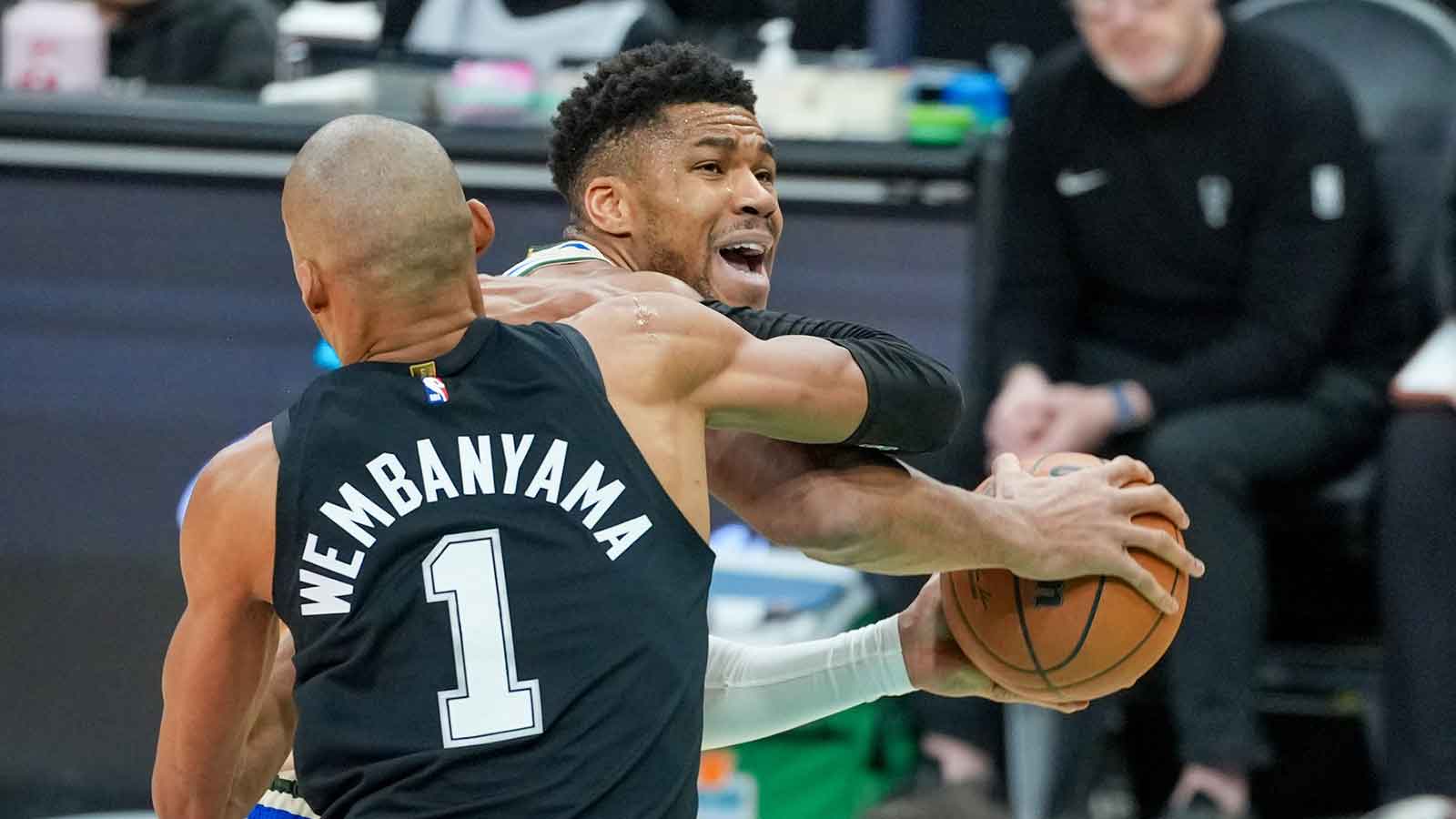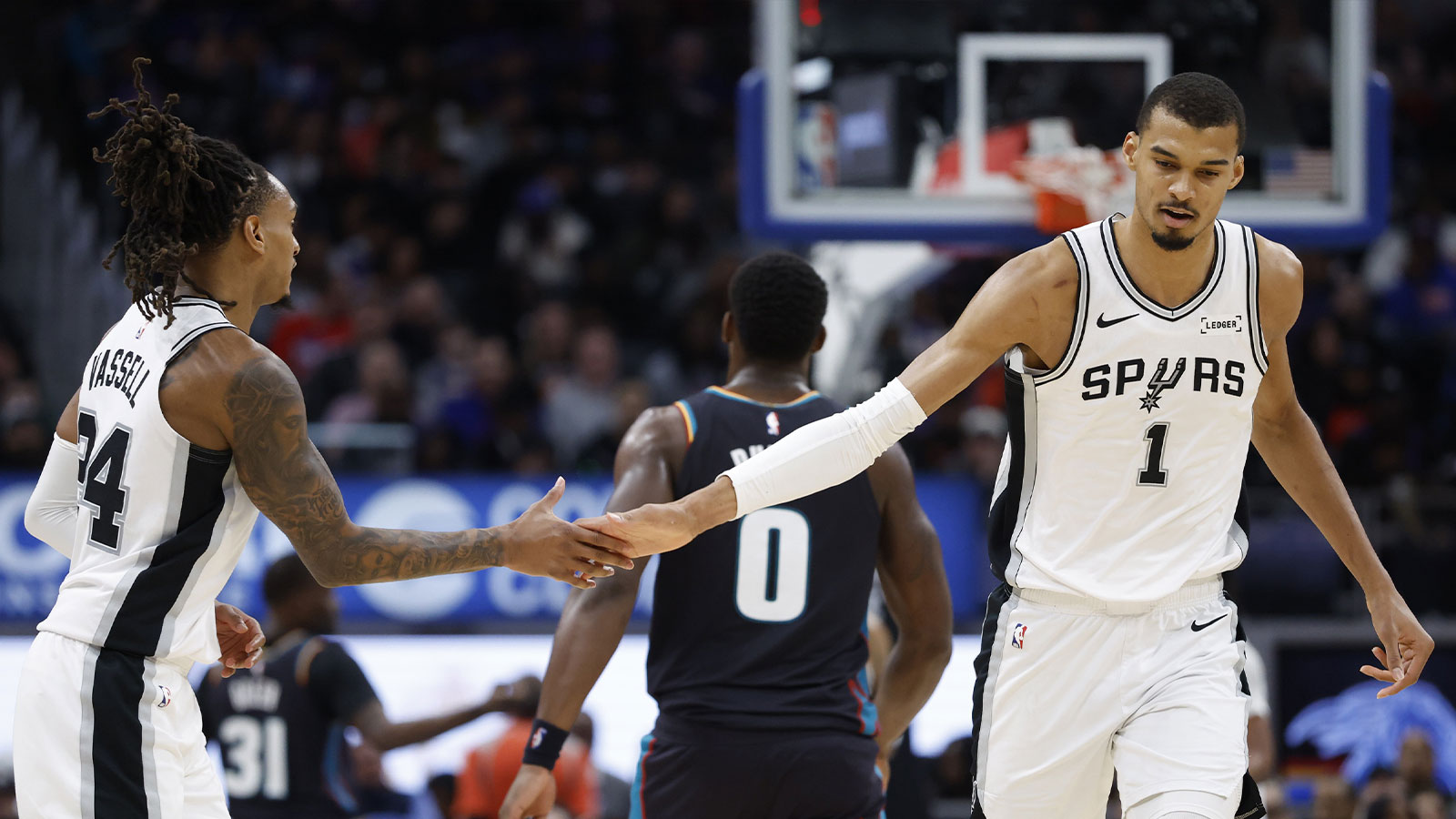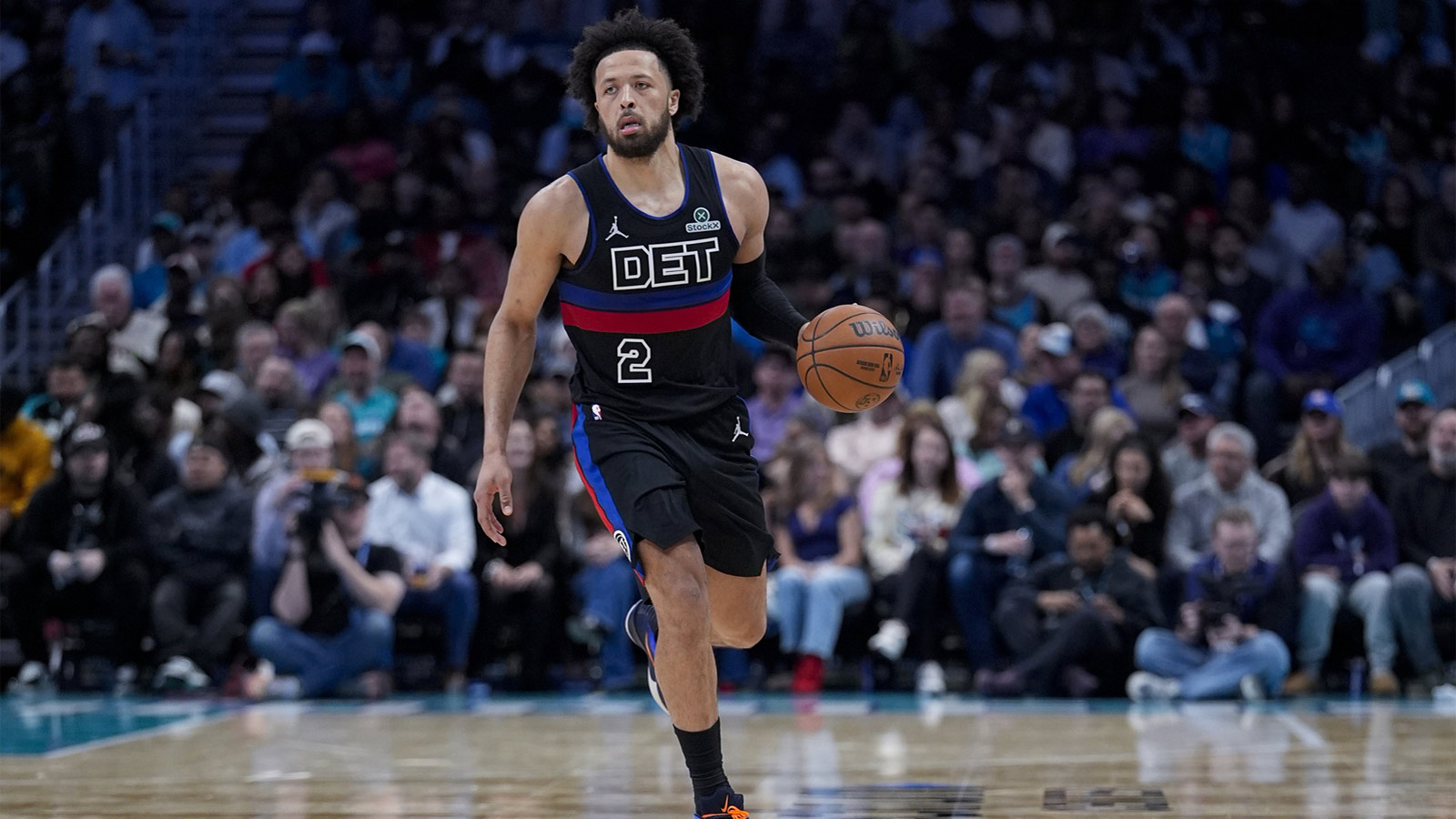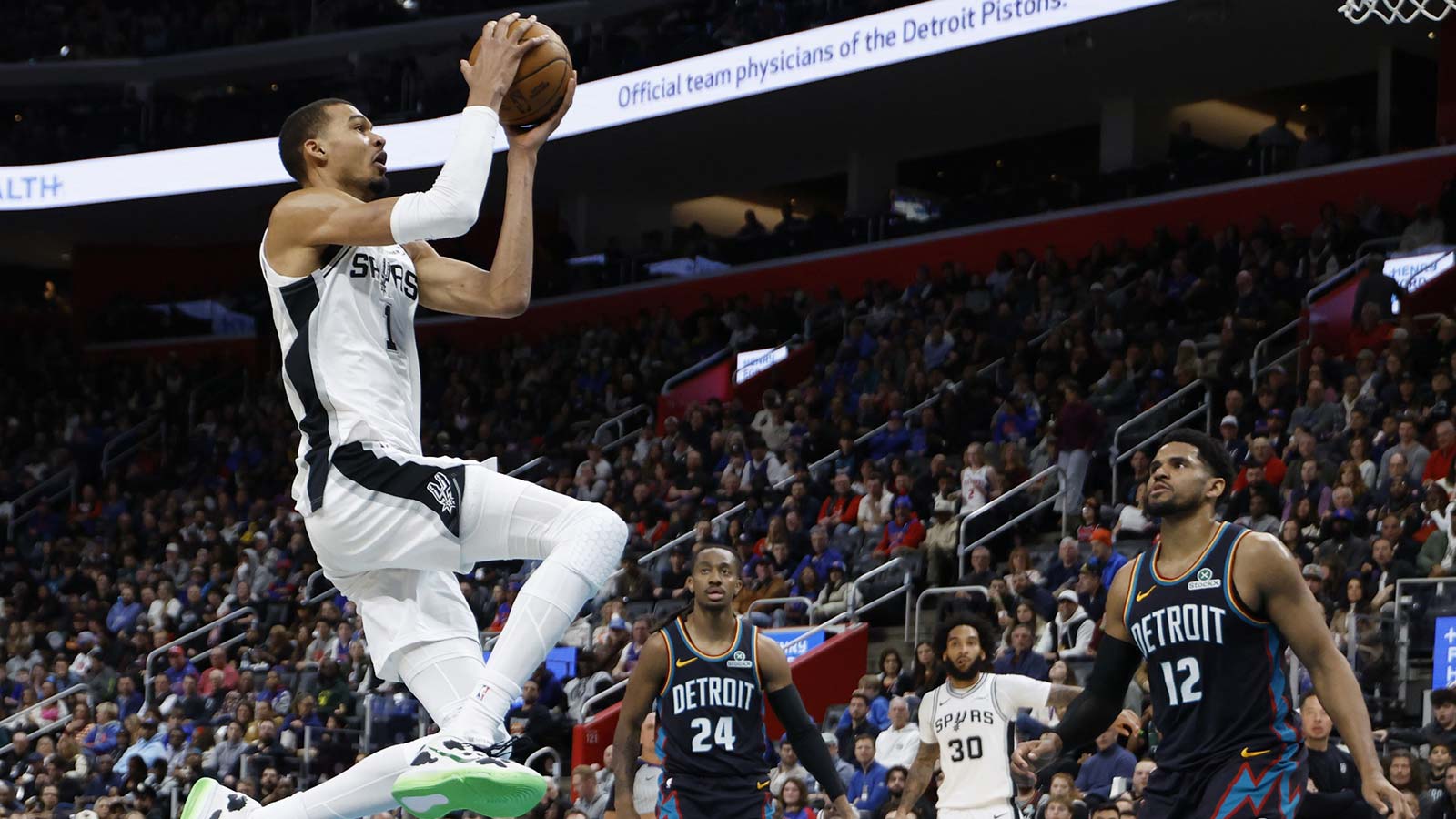“It's just basketball.”
One of the most nuanced men in the NBA, probably all of sports, isn't so complex when it comes to the game in which he's made his legend. The military veteran who considered a career in the CIA and frequently publicly expresses critical thoughts on societal and political matters, often dismisses the importance of basketball within, what he calls, the bigger picture.
Gregg Popovich's mantra is forged over a coaching career that's older than several of his fellow coaches in today's NBA. But it's also forged from extraordinary success. The man who so slowed the game down to the point of NBA Finals scores in the 70s is also responsible for laying out the ‘beautiful game.'
How? Because he adapts. Why? It's a simple game.
Tim Duncan was already great enough at 23 years old to lead a team all the way. Add fellow Hall-of-Famer David Robinson as well as a rugged, veteran group and it culminated in the franchise's first NBA championship in 1999. Duncan would pick up two more Finals MVPs and two consecutive league MVPs over the next six seasons.
Nine seasons and a fourth NBA championship after the 2005 title, a 38-year-old Duncan and a 37-year-old Manu Ginobili were still among the best players in the organization. But, along with 32-year-old Tony Parker, the ‘Big 3' hadn't won a championship since 2007. Though a third-year-player named Kawhi Leonard was showing promise, Pop determined the team would thrive if there were no offensive focal point.
What resulted was a symphonic version of the game that mesmerized with constant, crisp ball and player movement. It was as effective as it was beautiful. The Spurs ended the Miami Heat's quest for a third straight title in 2014, that championship team occupying a special place in the hearts and minds of basketball purists forever.
Keeping it simple with Victor Wembanyama
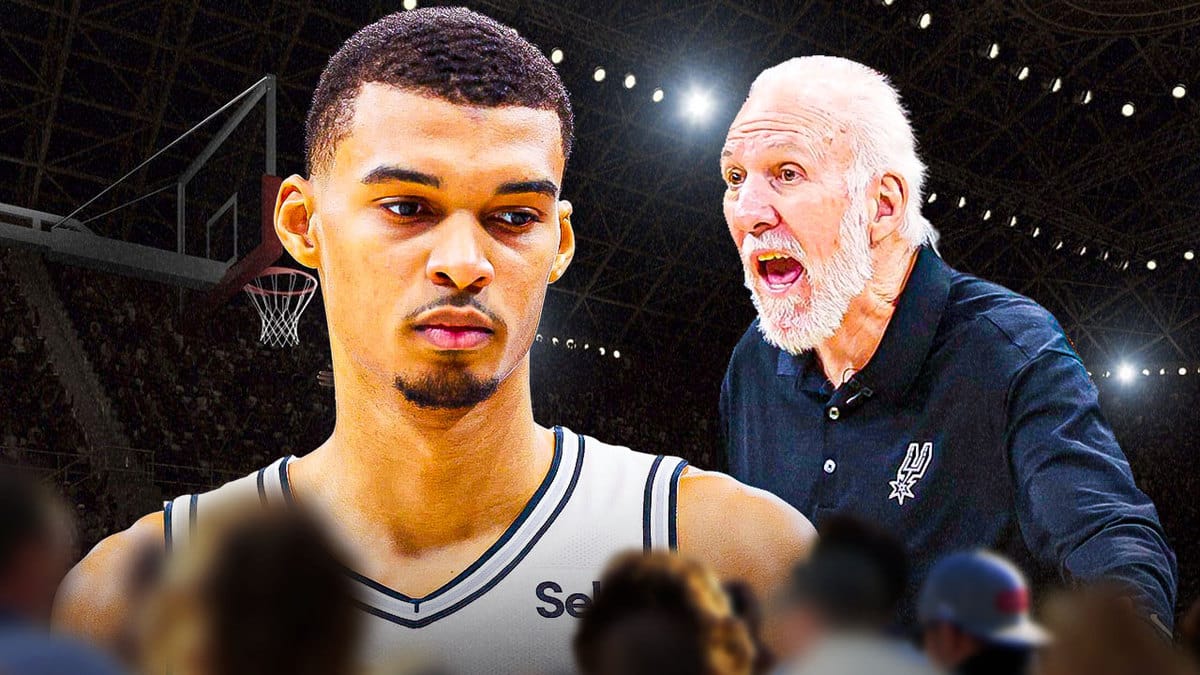
Another nine seasons have passed since then. ‘Mesmerizing' and ‘beautiful' are again terms associated with the Spurs, except now they're being used to describe one player. Here's another adjective: Extraordinary. No one in San Antonio understands more than Pop.
“We'll watch him, probably for the next couple of weeks without saying too much of anything to him, just we can understand his idiosyncrasies and the way he plays the game, how his body works, all that sort of thing,” the Hall of Fame coach said on Spurs Media Day last month.
Translation: Victor Wembanyama is so unique and skilled, I don't yet know the best way to utilize him.
Two weeks into Wemby's first NBA season, Pop has—surprise, surprise—kept it simple. The offense doesn't run through the 7'4 marvel. Instead, Wembanyama is asked to flow within San Antonio's system as he picks his favorite spots. Wemby has shown flashes of brilliance. But we've also seen him out of sorts because the Spurs' sets, or lack of them, frequently lack flow.
“Certainly, we want to watch him develop. But it's the same with Devin [Vassell] or Keldon [Johnson] or Zach [Collins], everybody else,” Popovich added on that day before training camp started.
Translation: As Victor Wembanyama finds his footing, we expect our other players to get better as well.
Unlike 1997, there is no Robinson on this roster. Nor is there a ‘Big 3' as there was in 2015 when Leonard, albeit relatively briefly, became the face of the franchise.
There will come a day when Victor Wembanyama gets the ball just about every time down the floor. It may come next month. Until then, the winningest coach in NBA history will continue what he's done since he took his first basketball job as an assistant at his Alma Mater in 1973 at the Air Force Academy.
He'll adapt and he'll keep it simple.

